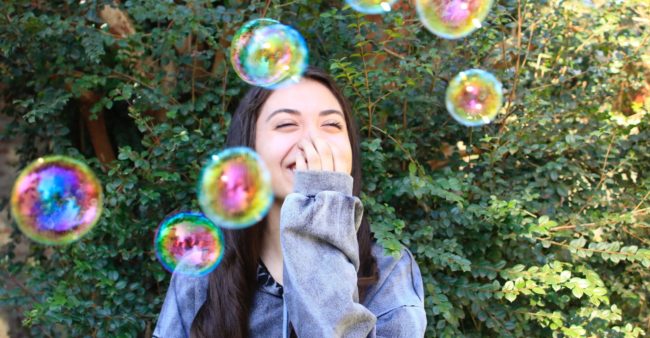
People with anxiety disorders, driving fears and phobias tend to have lower levels of life satisfaction. But a recent study suggests there’s a way to increase life satisfaction, and thereby decrease driving anxiety and fears, all while having tons of fun. The secret is to weave more playfulness into your life.
What is Playfulness?
Playfulness refers to the quality of being lighthearted and prone to having fun. Playful people have a knack for making even the most mundane situations a shade more entertaining. They tend to be curious and active, enjoying word games, mental games and tapping into their creativity. While the trait may seem like something you’re born with, it can also be cultivated.
How Playfulness Helps
Bringing more playfulness into your life can likewise bring notable benefits, according to a study published in “Applied Psychology: Health and Well-Being.” The greatest benefit may be increasing overall life satisfaction levels, which can, in turn, benefit you across the board.
The study involved 533 participants, who were randomly divided into a control group, a placebo group and three experimental groups.
Over the course of the study, those in the experimental groups completed a daily exercise designed to increase playfulness. Exercises included activities based on established interventions of positive psychology, such as:
- Writing down three situations from that day where they behaved in a playful manner
- Being playful in a situation where they’re normally not, and then recording that experience
- Reflecting on any playful behavior in which they had engaged that day
The placebo group undertook a daily task that had no bearing on the experiment.
The theory was that the purposely playful exercises would help individuals focus their attention on and increase their use of playfulness throughout their days. It did. It also resulted in a moderate, temporary improvement in their overall well-being.
The study also concluded that playfulness can be induced throughout the day, even if it doesn’t come naturally.
How to Add Playfulness to Your Day
Children naturally incorporate playfulness into their day, and you can start your own playfulness habit by watching how they do it. Simply witness them in action, paying attention to how they play, how they communicate and how their mind observes and questions what they encounter.
Other ways you can add more playfulness to your day includes:
- Smiling and laughing as often as possible
- Using unscheduled time to decompress, reflect, daydream or be creative
- Trying new things, experiencing the unexpected
- Engaging in a variety of different artistic, sports-oriented or other activities when possible
- Dancing and singing whenever the urge hits
- Being grateful for even the smallest things
- Developing a positive attitude
- Scheduling a bit of playtime into your day, whether you actively engage with others or spend time solo doing something that makes you happy
You can also incorporate the playfulness exercises from the study into your day – or come up with your own ways to make playfulness a regular part of your life. You may be amazed at how a few small moments of play can result in a monumental change in your overall attitude, outlook and happiness with life.
SOURCES:
- https://psychcentral.com/news/2020/08/29/boosting-ability-to-be-playful-may-enhance-satisfaction-with-life/159166.html
- https://thegeniusofplay.org/genius/expert-advice/articles/10-ways-adults-can-be-more-playful.aspx#.X0763HlKhPY
- https://www.zmescience.com/science/playfulness-training-experiment-82624423/
- https://www.ncbi.nlm.nih.gov/pmc/articles/PMC3380611/







